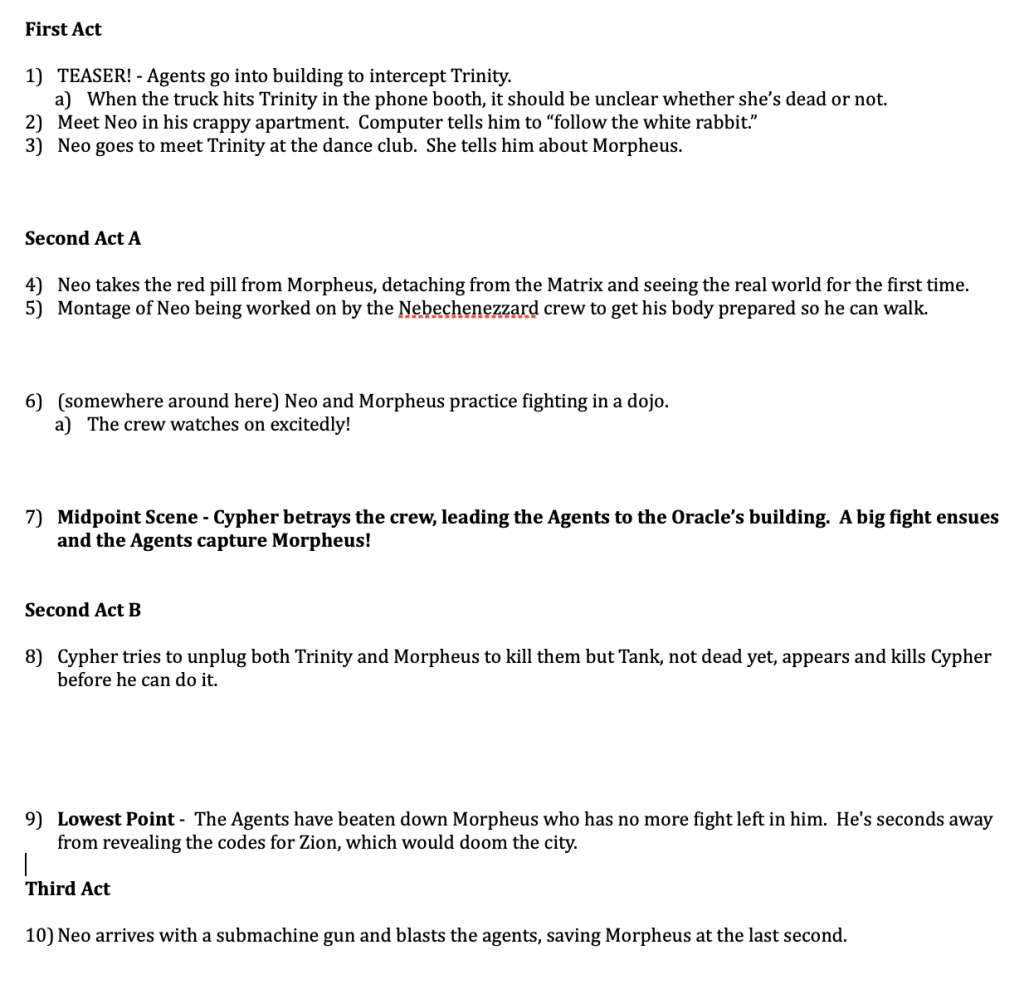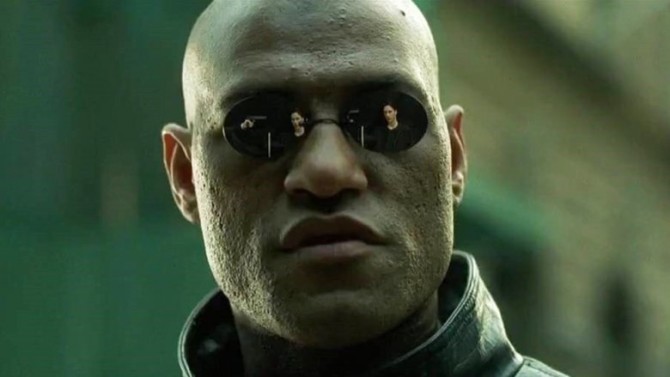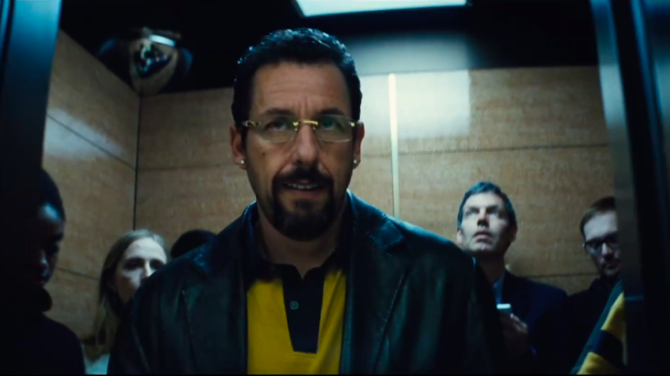It is time!!!
Today is the day we start writing our scripts.
For those of you just popping in, we’ve spent the last six days prepping for this moment. Here are those posts: Day 1. Day 2. Day 3. Day 4. Day 5. Day 6.
Now you’re probably wondering, “How are we going to write a script in just 2 weeks, Carson? I know you’ve had us prep everything and we even wrote a basic outline, but writing scripts is hard. You run into problems. You run out of ideas. You get writer’s block. There are so many ways a script can get derailed.”
All of these things are true.
IF!
Your standards for a first draft are too high.
We’re going to institute something called THE 2-WEEK SCREENPLAY PHILOSOPHY to ensure that you finish this script.
The 2-Week Screenplay Philosophy is simple: You will not judge what you write.
Sounds simple, right? But when you dig into it, it’s an extremely powerful mindset. The reason we often struggle to write is because we’ve set the bar too high. Many writers are cursed with the perfectionism gene. We want every scene to be great. When it isn’t, we get down on ourselves, spiraling into a belief that our idea is terrible and that the script doesn’t work.
That’s not going to cut it for the 2-Week Script. We have to be okay with subpar writing. Our goal is to GET OUR STORY DOWN ON THE PAGE. Then, later on, we can allow our analytical selves to identify the weaknesses in our script and come up with strategies to fix those weaknesses in rewrites.
But now, we can’t worry about that.
Let me be clear about this. If you are unhappy unless you write a great scene, you will not finish this exercise. It is imperative that you let go and allow the scenes to write themselves.
This does not mean don’t think about how you’re going to craft a scene. But you have to hit a certain number of pages a day. So if you get stuck not knowing what to do, write the most basic version of the scene and move on.
Speaking of pages, it’s time to get down to the nitty gritty. We have to make two decisions moving forward. How we package our daily goals and how we schedule our writing for each day.
Let’s begin with the packaging. You need to write either 4 scenes or 8 pages a day. After 14 days, that will bring us to 112 pages. Note that both of those numbers are the same thing. 4 scenes at an average of 2 pages per scene is 8 pages. Psychologically, however, they’re different. Since 4 is a lower number, it will seem easier to achieve for some. But if the number 8 doesn’t scare you, it’s fine to use that as your daily goal.
I understand that each script is unique and that each writer is unique. So not everybody is going to be writing 2 page scenes. In those cases, page count might be better for you. But if you ask me, I think 4 scenes is the easier measurement. Cause 4 scenes is easy. I can write a scene in 10 minutes. So can you. Not if you’re super-judgmental, you can’t. But if you let go, you can write scenes very quickly. I see no reason why you can’t write 4 scenes in two hours.
That brings me to our second component, scheduling our writing time.
One of the biggest reasons writing doesn’t get done is because writers don’t set specific times to write. They go off of “feel,” using the crutch of, “I’m an artist. I need to be inspired.” WE AIN’T GOING TO DO THAT HERE.
I am giving you three scheduling options to choose from.
OPTION 1: Write your 4 scenes or 8 pages in the morning. You can take a shower, eat breakfast, and have coffee. Spend 10 minutes checking up on the coronavirus news. But after that, you have to write.
OPTION 2: Write your 4 scenes or 8 pages at night. You’re living a little more dangerously here. But I’m aware that some of us are creatively dead in the morning and that the artistic juices don’t come alive until later. I’m fine with this as long as you pick a set time. DO NOT GO OFF OF “FEEL!”
OPTION 3: Split it in half. 2 scenes or 4 pages in the morning. Then 2 scenes or 4 pages at night. The reason I’m throwing this option in there is because anybody can write 4 pages. I mean, come on. It’s so easy. This is a screenplay. There’s 3 times as much white space as there are actual words. The “split” option is another psychological hack to help writing feel more manageable.
And that’s pretty much it. There’s no magic pill to this stuff. It’s about getting the pages down. My suggestion is to do the 4 scenes in the morning. That way, you get it out of the way and you feel good about yourself for the rest of the day. If you wait til the evening, you allow anxiety to seep in, you worry about running into problems you can’t solve and “What happens if I can’t think of anything and I don’t finish my four scenes?” Working in the morning gives you some room in case the unexpected happens.
As for how I’m going to structure the posts over these next two weeks, I’m not going to talk about general script issues every step of the way because every script is unique. Someone writing Avengers is going to have different problems than someone writing Get Out. So what I’m going to do is keep an eye on the comments section and see what you guys are struggling with. If I find consistent themes or things that resonate with me, I’ll post about them.
But mainly these next two weeks are about getting the pages written. And I know you can do it. Don’t judge yourselves. Writing is fun. Let whatever comes out, come out. You are going to surprise yourself. Now get writing!
You’ve been dreading it.
That word.
That evil enemy of all screenwriters.
The seven-letter word that may as well be the seven circles of Hell.
I’m talking about the…
Outline.
Look, I’m not going to debate you on whether it’s good to outline or not. For this script, you’re going to outline. And the good news is, it’s not going to be some elaborate ordeal. All you’re doing is taking everything that you’ve already written down and organizing it into a slightly more structured document.
A script is roughly 50 scenes. That’s assuming it’s 100 pages long with an average of 2 pages per scene. You might be writing longer scenes, like Quentin Tarantino does. That’s fine. You can easily calculate how many scenes you’ll write if your scenes average 5 pages per scene. 20 scenes.
The reason this is a nice number to know is that, now, when you lay out your outline, you can number the scenes and know how many scenes you’ve already imagined and how many you have left. Also, you’ll know where you’re missing scenes. You might have a bunch of scenes packed up in the first act and very few scenes after that. That should be an indication you need to add a few more scenes later on.
We want to make this outlining as simple as possible so here’s what I’d recommend doing. Divide it into four sections (First Act, Second Act A, Second Act B, Third Act). Each section will consist of 8-14 scenes depending on your writing style and the type of movie you’re writing. If you’re writing like Tarantino, closer to 8. If you’re writing like Michael Bay, closer to 14. Then, just start putting the scenes down chronologically and numbering them.
Since time is tight, all I care about is getting the bare essence down in the outline. But if you want to give yourself notes or write down some dialogue you had for the scene, by all means, go for it. You already have four scenes, since all of you did the checkpoints exercise. So put those in first. Then start filling in everything else.
By the way, I know that for some people, it’s confusing what constitutes a scene. If a couple is having an argument in their living room, then one of the characters storms upstairs, the other follows, and now they argue in the bedroom, does that constitute one scene or two? Generally speaking, if there’s a location change, it’s a new scene. But if the scenario naturally flows from one location to another, you can easily count it as one scene. Sometimes it’s up to the writer to decide. Kind of how it can be arbitrary where to break and start a new paragraph in a novel. I would constitute the above character argument as one scene. But if there was a small pause where both characters caught their breath in the middle, you could easily argue that it would be two scenes. The point is, don’t get too caught up in all that. What matters is we get as many scenes into the outline at possible.
Here’s a general idea of what you should be going for…
As you can see, I’ve got 10 scenes figured out for a script I’m working on called “The Matrix.” Doing the math, that’s roughly 20-30 pages worth of scenes. Which gives me a good indication of how many more scenes/pages I need to get my full 100-110 page screenplay. Notice I’m leaving space between areas where I don’t know what’s going to happen yet. That’s so I have a visual indication of where I need to fill stuff in.
Just to be clear, don’t worry if you don’t have everything figured out yet. A big part of writing is discovering things along the way. So you’ll get new ideas as you’re writing Monday, Tuesday, and Wednesday, which will help you start filling in some of the thinner sections of your outline as you go. And, of course, if you don’t jive with this outlining method, feel free to use your own. Just remember that we’re all trying to do something different this time around to see if there’s a better approach than what we’ve been using in the past. So I encourage you to give this a shot.
Wow, six days later and we’re ready to start writing!
I’ll begin the official WRITE A SCREENPLAY IN 2 WEEKS posts Sunday night at 11pm Pacific time. That’s where I’ll tell you, specifically, how you’re going to approach this to easily finish a screenplay in two weeks.
Seeya then!
Okay, we’re just two days away from beginning our screenplay. I’m excited!
I’ve seen that some of you are concerned this is all going too fast. “Scripts need time and planning and research if they’re going to be any good!” you remind everyone.
Let me cut you off right there. The screenwriters who make the most money in this town are the ones who come in at the last second and rewrite a script in two weeks, or sometimes a few days, right before production.
Learning how to write quickly is going to help you in the long run.
One of things I became guilty of as I delved further into my screenwriting journey was over-prepping and over-developing my scripts. I would do everything you were supposed to do in screenwriting… EXCEPT WRITE.
If you have that problem as well, the only way to tackle it is to get outside of your comfort zone. And writing a script in 2 weeks is going to do that. Don’t listen to your brain. Listen to me. I will guide you to the good place.
Today’s task is a simple one. You’re going to FLESH OUT YOUR IDEA.
Carve out 2-3 hours, sit down, read what you’ve got so far with your title, your logline, your checkpoints, and your character essence sheet, and allow your mind to brainstorm. Any ideas you come up with, whether it be plot points, thematic ideas, what your supporting characters are going to do… write it all down in a single document.
This can be the same document as the one your checkpoints are in or it can be separate. Whatever makes you feel the most creative. We don’t want you stifled. We want ideas flowing freely. So if you think a blank document offers a better chance of that, go with the blank document.
The ultimate goal with today’s exercise is to fill in as much of the story as you can. The reason so many writers start screenplays that they’re unable to finish is that they don’t have enough of the story fleshed out in their head. They reach a point where they don’t know where to go next. Or they come upon a problem that they don’t have a solution for. The more ideas you put down into the document, the more prepared you are for those moments.
If you like more structure, divide your FLESHING OUT document into two halves. The first is notes to yourself and the second is things that will actually appear in the script. A note to yourself might look like: “Make sure every time Morpheus is mentioned in the early scenes, he sounds like a god-like figure.” A plot-related note would be, “Kylo is forced to fight the Knights of Ren in the desert just before he’s able to kill Rey.”
This should be fun! You’re exploring ideas. Coming up with a movie in your head. It’s the most exciting time of writing. Anything is possible! Writing only becomes a drag when we start judging ourselves. We’ll have plenty of time to judge in future rewrites. Today, though, is a celebration of your idea. It’s picking all the fruit off this amazing tree you’ve grown.
Tomorrow we outline.
Monday we write!
Note: The winner of the Sci-Fi Showdown Tournament will be reviewed on the Friday AFTER the 2 Week Screenplay Challenge
If you’re late to the party, we’re writing a screenplay in two weeks starting this Monday. Here are the previous links: Day 1 – Get ready. Day 2 – Pick a concept. Day 3 – Checkpoints.
California just closed down.
I know that’s freaking some of you out. But I’m a cup half full guy and the way I see it is THAT’S MORE TIME TO WRITE. All this time, the world seemed confused by the writer’s lifestyle. We’re introverted. We stay at home as much as possible. We get lost in a world we’ve created for hours at a time. Finally, our lifestyle has become an asset. This is what we do! Which is why the 2 Week Screenplay Challenge rages on.
Okay, we’ve got a LOT of work to do before we start Monday so let’s not waste any more time. Today we have TWO tasks. The first is to finish our final five checkpoints. If you don’t know what a checkpoint is, I explain it in yesterday’s article. My main concern is that you won’t be prepared for the second half of your screenplay. That’s the part that’s least shaped in your head and, for that reason, it’s where a lot of writers give up. They get to that post mid-point section and because they’ve thought so little about it, they feel lost and eventually lose confidence that they have enough story to finish.
So here are a couple of things to remember. An active protagonist will solve many of your plot problems because an active protagonist will need to pursue their goal/objective/solution. However, if your hero is less active, it can be hard to come up with ideas, since you have to come up with things that happen TO your hero as opposed to things your hero does TO the environment.
For example, Once Upon a Time in Hollywood is a tough movie to write because the characters aren’t pursuing any overt goal. They’re going about their day and reacting to the elements as they come in. Contrast that with something like, say, “I Am Legend,” where our protagonist, a doctor, is trying to come up with a cure. This ensures that he always has a goal, a task that must be accomplished. This allows for a lot more plot ideas.
So unless your story dictates a passive or reactive protagonist, I strongly recommend your hero be active. You’ll thank me later.
Okay now let’s talk about the second half of the movie in general. The second half of your second act (roughly pages 51-75 in a 100 page script) is the section of the script where things should be getting REALLY HARD for your hero. The obstacles will get much bigger than they were in the first half of the second act (in Invisible Man, our heroine gets thrown in a mental hospital). The things that are taken from your hero will be much more significant (the end of a relationship, the death of a friend).
What you’re trying to do with the second half of the second act is create a scenario under which success seems impossible for your hero. So whatever you can put in front of them, whatever you can take away from them, do it. This is the section where your hero is tested beyond anything they’ve ever endured before. Remember that that’s what all scripts are about – testing the characters – seeing if they’re strong enough to obtain the prize, whether it be mentally, physically, or (preferably) both.
If you want to watch a movie that exemplifies escalation throughout its second act, go rent Uncut Gems now. Every five minutes is more intense than the previous five minutes because the writers throw bigger and tougher issues at the hero.
Hopefully, that helps you come up with five more checkpoints.
Your second objective for today is to write down a 1-2 page “essence sheet” for your hero. I use the term “essence sheet” as opposed to “character biography” because I don’t want to know that daddy touched Jimmy when he was five. I’m more interested in how your character moves through the world today. What is their job? Are they married? What does their day-to-day life look like? What’s important to them? For some people peace and happiness is what’s important. For others, it’s having that pint of ice cream at the end of the day.
Of specific importance is the lens through which they approach life. I was just watching the Pauly Shore podcast with Adam Corolla and Pauly asked him if he was scared of getting the coronavirus. Corolla said, “I’m an Atheist, I’m either going to get it or I’m not, so in the meantime, I’m going to do whatever the hell I want.” That’s the perfect kind of thing to put in a character essence sheet. That sentence tells us so much about who Adam Corolla is. Try to find mantras like that that define your own hero.
And, finally, the most important thing of all is how you see your hero’s internal STARTING POINT and ENDING POINT in the movie. This is how your hero changes over the course of the story. Or, a better way to look at it may be, how the story changes your hero. In The Invisible Man, Cecilia starts off as a meek victim. Yet she ends up decisive and confident. In the film “Yesterday,” all our hero wants is to be famous. Then by the end of the story, he realizes that fame is a lot more complicated than he realized. Just like your plot has a starting point and an ending point that are different, your main character should have a starting point and ending point that are different.
You probably won’t ever want to look at this document again. Nor do you need to. Just the act of writing it is going to help you understand the character better. It also helps you understand what you need to establish early on in the script. You have to convey the essence of your character in those first few scenes. That then sets up how your character needs to transform by the end of the film.
Of course, there’s no law that states a character needs to arc in a story. But I find that trying to add a character arc is better than not trying to. If the arc doesn’t work, you can always eliminate it or downplay it in future drafts. But it’s hard to add a character transformation after the dye has been cast on the rest of the story.
So there we go. Five more checkpoints and a 1-2 page essence sheet for your hero. Get to it and I’ll be back tomorrow to help you outline!
You can find Day 1 of Prep here and Day 2 of Prep here.
When Stephen McFeely and Christopher Markus sat down to write the gigantic two-part Avengers finale, they admitted they were overwhelmed by the task. Filling up a six hour screenplay is a daunting experience. So how did they overcome the fear?
They started writing down CHECKPOINTS – major moments in the script.
For example, the scene where Captain America fights himself. They figured out, “Okay, we’re going to have that happen around page X in the story.” Once they were able to lay these checkpoints down on a timeline, they no longer had to write from page 1 to page 300. They only had to write to Page 25, when Tony Stark, Dr. Strange, and Spider-Man fight Thanos’s goons in New York City. And then to page 40, when the Guardians of the Galaxy rescue Thor.
Checkpoints give you smaller chunks of screenplay to conquer. The more of them you have, the smaller those gaps of blank pages become. All of a sudden the screenplay you’re writing doesn’t seem so big and scary anymore.
That’s tomorrow’s goal. I want you to come up with five checkpoints in your script. And then Friday’s goal is going to be to come up with five more, for a total of ten. I’m going to make it easy for you by providing you with the four most common checkpoints.
The first is the inciting incident, which tends to happen somewhere between page 5-12. Depending on your script, it could come sooner or later. All the inciting incident is is the introduction of the major problem your hero faces in the movie. So if it’s Avengers, it’s that Thanos is trying to get the Infinity Stones so he can snap away half the universe. If it’s John Wick, it’s when they kill his dog. If it’s Ad Astra, it’s when Brad Pitt is told his dad is still alive and missing and they need Mr. Pitt to find him.
Not all inciting incidents fall perfectly into the “major problem” category. For example, Uncut Gems. I’m not entirely sure what the inciting incident there is. Maybe it’s when Kevin Garnett won’t give him back the gem right away? Or is it when Sandler initially receives the gem? Not sure. Parasite as well. No real problem enters our poor family’s existence in the first act because the infiltration of the rich family’s home was the poor family’s idea to begin with. I suppose you could say that the inciting incident is when the family friend comes to the son of the poor family and tells him about the tutoring job.
In these cases, think of the inciting incident as any plot moment that jumpstarts the story. So Adam Sandler receiving the gem in the mail jumpstarts Uncut Gems. The son being alerted to the tutoring job jumpstarts Parasite.
The second checkpoint is the end of the first act, which is when your character commits to the journey. After the inciting incident, there is often a “refusal of the call” or a “delay in action.” But, eventually, our hero decides to go on the journey because there wouldn’t be a movie if he didn’t. This occurs around page 25-27 in a 100-110 page screenplay.
You see this in just about every Pixar and Disney movie. Most recently, Onward. Ian and Barley head off in search of their father. Inception when they head into Robert Fischer’s mind. Every Mission Impossible movie when they actually go off on the mission. This is where your movie officially begins.
Of course, just like the inciting incident, this doesn’t fit perfectly into every movie, particularly ones where the hero doesn’t go on a journey. Sometimes your hero is stuck in a house, like Michelle in Cloverfield Lane. If your script is non-traditional, look for something that approximates a first act turn. In Cloverfield Lane, for example, I might classify the first act turn as the moment Michelle DECIDES she’s going to try and get out of here. That switch in her demeanor from reactive to active signifies a new energy in the story.
Next we have the midpoint shift. Or the midpoint escalation. The best midpoint shifts transform the story. Make it feel different from the first half of the movie. You do this so your movie doesn’t have the same energy and feel the entire way through. Remember that predictability eventually equals boredom. So you want to use your midpoint shift to change things up a bit. A good example would be the midpoint shift of The Invisible Man. That happens when Cecilia gets booted out of her friend’s house and decides to prove this man is after her instead of allowing him to do what he was doing through the first half of the movie, which was torture her.
Or Parasite. That film had one of the most daring midpoint shifts I’ve ever seen, when they introduce a secret basement floor where a third family is hiding.
Finally we have the LOWEST POINT, which will take place at the end of your second act (between the pages of 78 and 90). Lowest Points are easy to come up with because it’s always some connection to death. Either literally or symbolically. It could be our hero’s friend died. If the main hero is a chef, maybe his restaurant closes down for good (dies). To use Invisible Man again, Cecilia is in a nut house, she’s tired of fighting, so she slits her wrists. In Parasite, it’s when the poor family’s house is flooded, destroying everything (their house literally dies).
So there you have it. Four checkpoints to get you started.
How do you come up with six more? That’s up to you. It could be one of the first scenes you imagined when you came up with your idea. Like the hilarious scene when all the human characters meet the game versions of each other in Jumanji. Or the convenience store scene in The Hunt. It could be something visual, like the famous giant piano playing scene in Big.
It may be a plot twist that happens, like the reveal of the girl in JoJo Rabbit. Or the surprise death of one of your characters. It could be a major monologue from one of the characters (Jules’ Big Kahuna burger monologue scene in Pulp Fiction) or a killer dialogue scene (DeNiro and Pacino in Heat) showdown. If you can envision it, it can be a checkpoint.
Some final thoughts. It’s important that you do this because we’re going to be making a mini-outline over the weekend and the more of these you have, the easier it will be to construct your outline.
Also, if you can, try and balance your checkpoints out so that you have roughly the same amount in the second half as you have the first. It’s easier to come up with first-half checkpoints because that part of the story is clearer in your head at the moment. But one of the big challenges of finishing a screenplay is that back half of the second act. It’s the section of the script we know the least about before we write. So if you can throw a couple of solid checkpoints in there, you’re going to be ahead of the game.
Now get to it!







